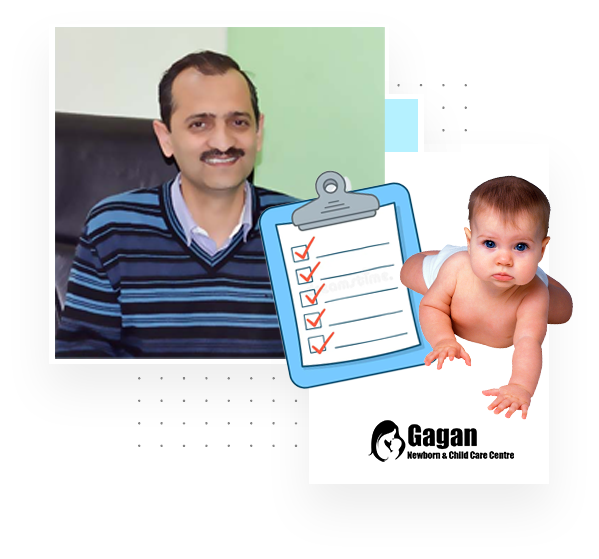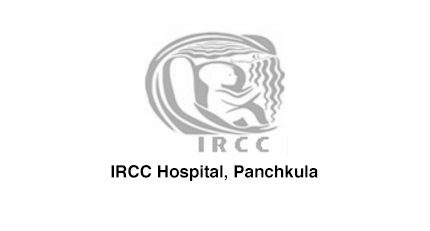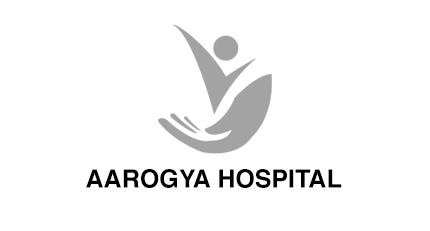- +91- 9855440990
- drgaganmahajan@gmail.com
- SCF-25, 1st floor, High Street Block B, VIP Road, Zirakpur
The center was established to offer high-quality care for newborns at affordable rates. We take pride in serving the earliest phase of a child’s life outside the womb.

Regular check-ups to monitor your child’s growth, development, and overall health. These visits include physical exams, hearing and vision tests, and preventive care to ensure your child stays healthy.
Administering essential vaccines to protect your child against various infectious diseases. We follow the recommended immunization schedule to keep your child safe and healthy.
Evaluating your child’s physical, cognitive, and emotional development. Early detection of developmental delays ensures timely interventions and support for your child’s growth.
Prompt and effective treatment for common childhood illnesses such as colds, flu, ear infections, and other acute conditions. Our goal is to provide quick relief and prevent complications.
Ongoing care and support for children with chronic conditions like asthma, diabetes, and allergies. We offer comprehensive management plans tailored to your child’s specific needs.
Providing expert advice on nutrition and diet to support your child’s growth and development. We offer personalized dietary plans and guidance to ensure your child receives balanced nutrition.
VIP Road Zirakpur
Monday to Saturday
10:00 AM to 1:00 PM
Sunday
10:00 AM to 1:30 PM
IRCC Hospital (Sector-17 Panchkula)
Monday to Saturday
5 PM to 7 PM
Newborn & Gagan Child Care
Our NICU provides life-saving care for premature and critically ill newborns, offering advanced support to help them thrive. With specialized equipment and expert staff, we ensure the best outcomes for your baby’s health.
We offer a complete vaccination schedule to protect your child from preventable diseases, ensuring their long-term health and well-being. Our team educates parents on the importance of timely immunizations and provides safe, effective vaccines.
Our team provides ongoing, personalized care for children with chronic conditions like asthma, diabetes, and allergies. We focus on improving quality of life through tailored treatment plans and continuous support for both the child and family.
(FAQ) about Newborn Care at Gagan Child Care
Our partnerships with hospitals ensure access to advanced medical facilities and specialized treatments. These collaborations enhance the quality and range of care we provide for your child’s well-being.



My daughter was born with a birth weight of 590 grams and stayed in NICU for 2 months. I had full confidence on Dr Gagan and his team and my baby was finally discharged with a weight of 1320 grams. He answered all our queries and explained everything to us in simple language.

My daughter was born at 26 weeks gestation and had birth weight of 890 grams only. Dr Gagan Mahajan and his team not only managed my baby well but also allayed all our anxieties. His positive attitude while handling our baby helped us a lot during that stressful period. Now my daughter is 1 year old and is absolutely fine.
